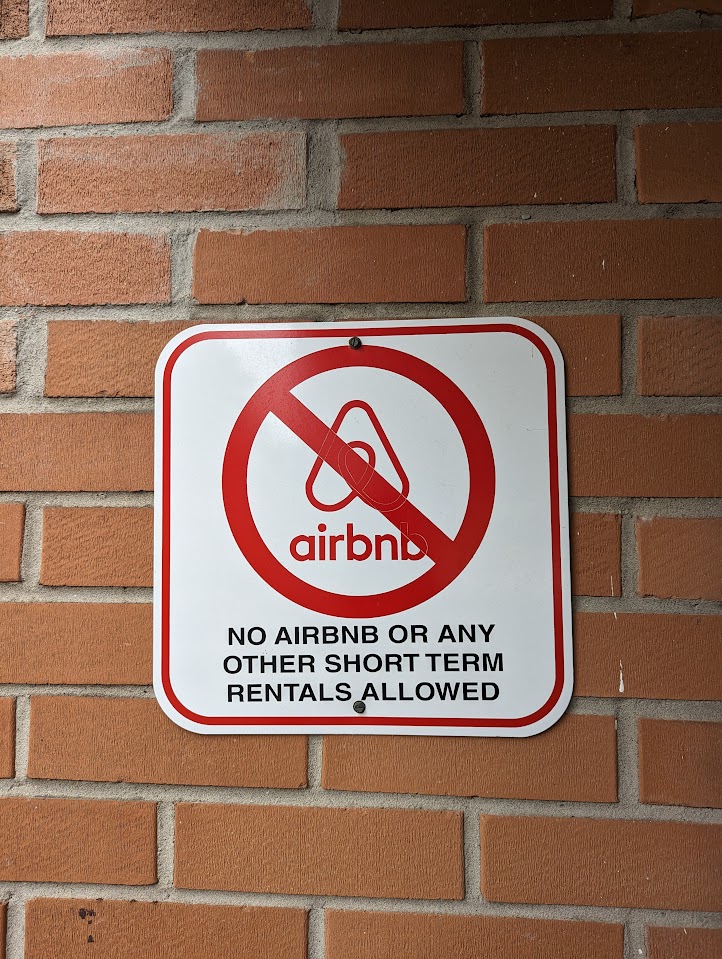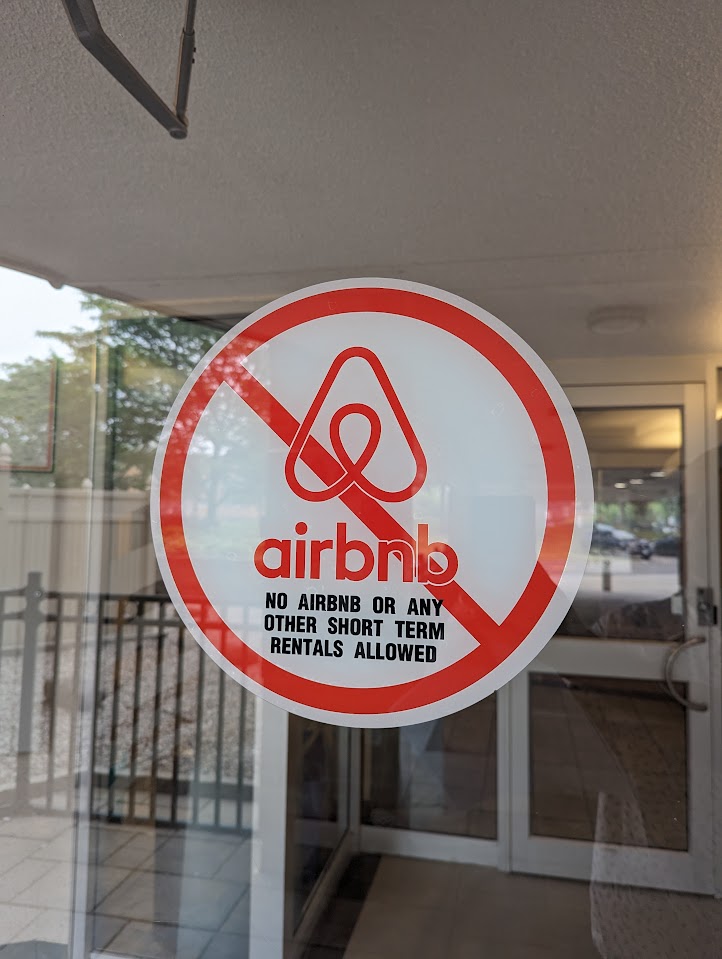In recent years, short-term rental platforms like Airbnb have surged in popularity, offering travelers unique and often more affordable lodging options compared to traditional hotels. This trend has been particularly noticeable in urban centers across Canada, where cities like Ottawa, Toronto, and Vancouver have become hotspots for short-term rentals. The rise of these platforms has not only revolutionized the travel industry but also significantly impacted local housing markets.
As these platforms grew, so did concerns about their effects on housing availability, affordability, and the quality of life for permanent residents. The popularity of short-term rentals, while beneficial for tourism, has sparked debates among policymakers, housing advocates, and residents, leading to significant regulatory changes aimed at balancing the interests of all stakeholders.

Recent Regulatory Changes in Ottawa, Toronto, and Vancouver
In response to the growing concerns about the impact of short-term rentals on housing availability and affordability, several Canadian cities have implemented stricter regulations on platforms like Airbnb. Ottawa, Toronto, and Vancouver, in particular, have introduced significant changes aimed at curbing the proliferation of short-term rentals in residential areas.
Ottawa
In Ottawa, new regulations came into effect in 2021 to better control the short-term rental market. The city’s rules primarily focus on limiting short-term rentals to the host’s primary residence. This means that homeowners can only rent out their homes, or a portion of them, if they live there most of the year. The regulations also impose a registration requirement, where hosts must obtain a permit to legally offer their property as a short-term rental. These measures aim to reduce the number of entire homes being removed from the long-term rental market, thereby alleviating some pressure on housing availability.
Toronto
Toronto has similarly tightened its regulations on short-term rentals, with a focus on preventing the conversion of long-term rental units into short-term vacation rentals. The city requires that short-term rentals be restricted to the host’s primary residence, limiting the number of nights per year that a unit can be rented out. Toronto’s regulations also include mandatory registration with the city and a cap on the number of consecutive days a property can be rented to the same guest. These rules are intended to ensure that homes remain available for residents while still allowing homeowners to participate in the short-term rental market within reasonable limits.
Vancouver
Vancouver has been at the forefront of short-term rental regulation in Canada, with its regulations taking effect as early as 2018. Similar to Ottawa and Toronto, Vancouver’s rules stipulate that short-term rentals must be in the host’s principal residence. Additionally, the city imposes strict penalties for non-compliance, including hefty fines and legal action. Vancouver also mandates that hosts obtain a business license and display it in their rental listings. The city’s proactive stance aims to protect the availability of long-term rental housing in a market that has been notoriously tight and expensive.
Comparison of Regulations
While all three cities have implemented regulations focusing on the primary residence requirement, there are some differences in how these rules are enforced and the specific details of the regulations. Ottawa and Toronto have more recent regulations, reflecting their ongoing efforts to adapt to the evolving short-term rental market. Vancouver’s earlier adoption of these rules has given the city more time to observe the impact and refine its approach, serving as a model for other Canadian cities.
These regulatory changes reflect a broader trend across major urban centers in Canada, where the balance between accommodating tourists and preserving housing for residents has become a critical issue. As these cities continue to fine-tune their approaches, the effects on the housing market and the short-term rental industry will become increasingly apparent.

Reasons Behind the Regulatory Changes
The tightening of short-term rental regulations in cities like Ottawa, Toronto, and Vancouver is driven by several key factors, all rooted in the need to address the broader challenges facing urban housing markets. Understanding these reasons sheds light on the motivations behind these regulatory shifts and their expected outcomes.
Housing Crisis and Affordability Issues
One of the primary drivers of the new regulations is the ongoing housing crisis in major Canadian cities. Ottawa, Toronto, and Vancouver have all experienced significant increases in housing demand, leading to rising property prices and rents. As more homes were being converted into short-term rentals, often catering to tourists and short-stay visitors, fewer units were available for long-term tenants, exacerbating the shortage of affordable housing.
Governments and housing advocates argue that the growth of short-term rentals has contributed to this crisis by effectively removing housing stock from the long-term rental market. By introducing regulations that limit short-term rentals to primary residences, cities aim to return these properties to the long-term rental pool, thereby easing pressure on housing availability and affordability.
Community Pressure and Quality of Life
Local communities have also been vocal in their concerns about the proliferation of short-term rentals. Residents in neighborhoods with high concentrations of short-term rentals often report disruptions to their quality of life, including noise, increased traffic, and a transient population that doesn’t contribute to the community in the same way as long-term residents.
In response to these concerns, city governments have implemented regulations that prioritize the needs of permanent residents. By limiting short-term rentals to primary residences and requiring hosts to live on-site, these regulations help ensure that neighborhoods remain stable and that short-term rentals do not detract from the community’s character.
Government Objectives and Revenue Generation
Municipal governments have a vested interest in regulating short-term rentals not only to address housing and community concerns but also to ensure proper revenue collection. Platforms like Airbnb operate in a space that, until recently, was largely unregulated, meaning that many hosts were not paying appropriate taxes or fees on their rental income.
The new regulations typically include provisions for registration and licensing, which allow cities to track short-term rental activities more effectively and ensure that hosts are paying their fair share of taxes. This move not only increases municipal revenues but also levels the playing field between short-term rentals and traditional accommodations like hotels, which are subject to stricter regulations and taxation.
Preservation of Long-Term Rental Stock
Another significant reason behind these regulatory changes is the need to preserve the existing stock of long-term rental properties. With a growing number of landlords opting to convert their properties into lucrative short-term rentals, there has been a noticeable decline in the availability of units for long-term tenants. This shift has led to higher rents and greater instability in the rental market.

By restricting short-term rentals to primary residences, cities aim to discourage the conversion of entire rental buildings or multiple units into short-term vacation properties. This approach is intended to protect the availability of long-term rental options and stabilize the market, making it easier for residents to find affordable and secure housing.
Balancing Tourism and Housing Needs
Finally, these regulatory changes reflect an effort to strike a balance between the economic benefits of tourism and the housing needs of residents. Short-term rentals undeniably contribute to local economies by attracting tourists who spend money on accommodations, dining, and entertainment. However, without proper regulation, the growth of this sector can come at the expense of local residents who struggle to find affordable housing.
The new rules are designed to allow short-term rentals to coexist with the broader housing market, ensuring that the economic advantages of tourism do not undermine the long-term sustainability of urban living. By carefully crafting these regulations, cities like Ottawa, Toronto, and Vancouver aim to protect both their housing markets and their vibrant tourism industries.
Impact on the Short-Term Rental Market
The introduction of stringent regulations in Ottawa, Toronto, and Vancouver has had a significant impact on the short-term rental market, reshaping how platforms like Airbnb operate within these cities. These changes have influenced hosts, rental platforms, and even the tourism industry, as the new rules redefine what is permissible and profitable in the short-term rental space.
Effect on Hosts
One of the most immediate impacts of the new regulations has been on hosts who rely on short-term rentals as a source of income. By limiting short-term rentals to primary residences and imposing caps on the number of rental nights per year, many hosts have found it challenging to continue operating at the same scale as before. Those who previously rented out entire properties or multiple units have had to adjust their business models or exit the market altogether.
For hosts who were using short-term rentals to supplement their income, these regulations may have created financial strain. On the other hand, hosts who comply with the new rules—by renting out part of their home or their primary residence while they are away—can still benefit from the income without facing legal repercussions. However, the profitability of short-term rentals has decreased for those who can no longer rent out entire properties for extended periods.
Changes in Availability
As a result of the regulatory changes, there has been a noticeable decline in the availability of short-term rental properties in these cities. This reduction is particularly evident in the supply of entire homes or apartments that were previously listed for short-term stays. By enforcing primary residence requirements and limiting rental duration, cities like Ottawa, Toronto, and Vancouver have effectively reduced the number of properties available for short-term rental, particularly in high-demand neighborhoods.
This decline in availability has made it more challenging for travelers to find short-term rental accommodations, especially during peak tourist seasons. The reduction in supply may also drive up prices for the remaining short-term rentals, as the limited availability meets consistent or growing demand from visitors.

Impact on Rental Platforms
Rental platforms like Airbnb have also been directly affected by the new regulations. These platforms have had to adapt their operations to comply with the specific rules in each city, including implementing features that allow hosts to register their properties and adhere to local laws. In some cases, platforms have had to remove non-compliant listings, which reduces their inventory and, consequently, their revenue from these markets.
To maintain their business presence in these cities, platforms have invested in educating hosts about the new regulations and ensuring compliance. This effort includes providing tools for hosts to verify their primary residence status, track rental nights, and obtain necessary licenses. While these changes may increase operational costs for the platforms, they are necessary to avoid legal challenges and maintain good standing with local governments.
Economic Implications for the Tourism Industry
The reduction in short-term rental availability also has implications for the tourism industry in these cities. Short-term rentals often provide a more affordable and flexible lodging option compared to hotels, particularly for families and larger groups. With fewer options available, some travelers may find it harder to secure accommodations that meet their needs, potentially leading to a decrease in tourist numbers.
However, the regulations can also have positive effects on the tourism industry by leveling the playing field between short-term rentals and traditional accommodations like hotels, which are subject to more rigorous regulations and taxes. By ensuring that short-term rentals operate under similar constraints, cities can create a fairer competitive environment, which may benefit the overall tourism infrastructure in the long run.
Host Adaptation and Market Shifts
In response to these regulations, many hosts are exploring alternative strategies to remain profitable. Some have shifted their focus to mid-term rentals, targeting professionals or students looking for accommodations for a few months rather than just a few nights. Others have diversified their portfolios, offering different types of rental arrangements, such as co-living spaces or long-term rentals.
The market has also seen a shift towards platforms that cater specifically to longer stays, which are not as heavily regulated as short-term rentals. This adaptation showcases the resilience of the rental market and the ability of hosts to pivot in response to changing regulatory landscapes.
Long-Term Effects on the Housing Market
The long-term effects of the new short-term rental regulations in Ottawa, Toronto, and Vancouver are beginning to manifest, with significant implications for the housing market in these cities. While the primary goal of these regulations is to mitigate the housing crisis by freeing up more units for long-term rental, their broader impact on property values, investment strategies, and community dynamics is complex and multifaceted.

Increased Availability of Long-Term Rentals
One of the most anticipated outcomes of the regulations is the increase in the availability of long-term rental units. By restricting short-term rentals to primary residences and limiting the number of days properties can be rented out, these cities have successfully redirected some properties back into the long-term rental market. This shift is particularly important in cities like Vancouver and Toronto, where the housing shortage has been most acute.
As more units become available for long-term tenants, there is potential for a stabilization or even a slight decrease in rental prices. However, the extent of this effect largely depends on the overall demand for housing, which continues to be high in these urban centers. While the regulations alone may not solve the housing affordability crisis, they are a step toward increasing the supply of long-term rental housing, which could ease some pressure on the market.
Impact on Property Values and Investment Strategies
The new regulations are also influencing property values and real estate investment strategies. Investors who previously purchased properties with the intention of operating them as short-term rentals may find these investments less profitable under the new rules. As a result, some property owners may choose to sell, leading to a potential increase in the supply of homes for sale. This could, in turn, affect property values, particularly in neighborhoods that were previously dominated by short-term rentals.
Moreover, the regulations may deter new investors from entering the short-term rental market in these cities, shifting investment interest toward long-term rental properties or other forms of real estate. This could lead to a more stable and sustainable housing market in the long run, as speculative investments in short-term rentals decrease.
Challenges for Property Owners and Investors
For property owners who rely on income from short-term rentals to cover mortgage payments or other expenses, the new regulations present significant challenges. Those who are unable to pivot to alternative rental strategies may face financial difficulties, particularly if their properties are not suitable for long-term rentals or if they cannot find tenants in a saturated market.
Investors and property owners are increasingly exploring alternative ways to generate income from their properties, such as converting units into furnished rentals for mid-term stays or targeting specific markets, like corporate housing. While these strategies can help mitigate the impact of the regulations, they may not fully replace the income that was previously generated from short-term rentals.

Long-Term Market Trends and Predictions
Looking ahead, the long-term effects of these regulations on the housing market will depend on how the market adapts and how cities continue to enforce and refine their rules. If the regulations are successful in increasing the availability of long-term rentals and stabilizing rental prices, they could serve as a model for other cities facing similar housing challenges.
However, if the regulations lead to unintended consequences, such as a significant drop in property values or a decrease in overall investment in the housing market, there may be calls for further adjustments. Additionally, as the demand for flexible living arrangements continues to grow, there could be pressure on cities to revisit and possibly relax some aspects of the regulations to accommodate evolving housing needs.
Community Dynamics and Neighborhood Preservation
Finally, the long-term impact of these regulations on community dynamics cannot be overlooked. By limiting the proliferation of short-term rentals, cities aim to preserve the character and stability of residential neighborhoods. This approach helps ensure that communities remain vibrant and cohesive, with a focus on permanent residents rather than transient visitors.
As neighborhoods stabilize and the balance between short-term rentals and long-term housing is restored, residents may experience improved quality of life, with fewer disruptions and a stronger sense of community. This outcome aligns with the broader goals of the regulations, which are designed not only to address housing affordability but also to protect the social fabric of urban neighborhoods.
The introduction of stringent short-term rental regulations in Ottawa, Toronto, and Vancouver marks a significant turning point in how these cities manage the delicate balance between supporting tourism and addressing the housing crisis. These regulatory changes, driven by the need to preserve affordable housing, protect community dynamics, and ensure fair competition within the accommodation sector, have had profound impacts on both the short-term rental market and the broader housing landscape.
For short-term rental hosts and platforms like Airbnb, these regulations have necessitated a shift in operations, with many hosts either adapting to the new rules or exiting the market. While these changes have reduced the availability of short-term rentals, they have also opened up more opportunities for long-term tenants, potentially alleviating some pressure on the housing market.

However, the long-term effects of these regulations will continue to evolve as the market adapts and as cities refine their approaches to ensure they meet their housing and community objectives. Property values, investment strategies, and community cohesion will all be influenced by how effectively these regulations are enforced and how well they balance the needs of residents, tourists, and property owners.
As other cities in Canada and around the world grapple with similar challenges, the experiences of Ottawa, Toronto, and Vancouver may provide valuable insights. These cities’ efforts to regulate short-term rentals offer a blueprint for how urban centers can protect their housing markets while still benefiting from the economic advantages that platforms like Airbnb bring.
In the end, the success of these regulations will be measured by their ability to create more equitable and sustainable housing environments while allowing short-term rentals to coexist within the broader urban fabric. As these cities move forward, ongoing assessment and adjustment of these regulations will be crucial to ensuring that they achieve their intended goals and contribute to the long-term well-being of their communities.
